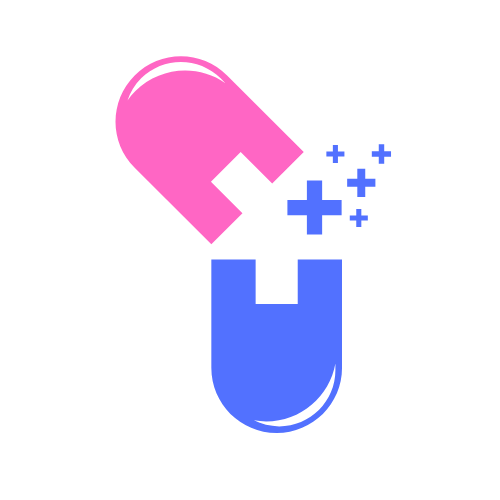
When it comes to nurturing your gut, probiotics are well-known. From miso, sauerkraut, and kefir to high-dose probiotic capsules, replenishing gut bacteria is widely recognized. But what about the power of prebiotics? These special types of fiber might be the missing piece in the gut health puzzle. In this article, we’ll delve into the world of prebiotics and explore why they are essential for our health and well-being.
What are prebiotics?
Your gut microbiome is composed of billions of bacteria, yeasts, and fungi that all need nourishment. Without proper nutrition, the microbiome begins to lose strains of beneficial bacteria, creating ideal conditions for harmful, pathogenic species to thrive.
Over time, an imbalance of gut bacteria (called “dysbiosis”) can contribute to various health conditions, including Irritable Bowel Syndrome (IBS), inflammatory bowel diseases, immune dysfunction, and mental health issues.
To keep the microbiome nourished and balanced, we need prebiotics. Prebiotics are types of carbohydrates that remain undigested until they reach the large intestine. There, they are broken down and fermented by gut bacteria. This fermentation process produces short-chain fatty acids, which serve as fuel for cells lining the gut and act as signaling molecules between the gut and the brain.
Is a prebiotic the same as a probiotic?
The spelling may be similar, but there is a significant difference between prebiotics and probiotics.
-
Probiotics are beneficial strains of bacteria and yeast that support our health. The term “probiotic” translates to “pro-life” (“bio” meaning “life”). You can find probiotics in foods like natural live yogurt, sauerkraut, sourdough bread, kefir, and kimchi, or in supplements like our Advanced Biotic. You might be familiar with strains such as Lactobacillus acidophilus and Bifidobacterium bifidum.
-
Prebiotics feed the probiotics. They function like compost in a garden, providing essential nourishment for the plants. Without prebiotics, probiotic bacteria struggle to grow and reproduce, allowing harmful strains to take over and cause dysbiosis.
We need both probiotics and prebiotics for optimal gut health. They depend on each other—prebiotics feed the probiotics, which, in turn, rely on this nourishment to thrive.
The science behind prebiotics: Why supporting your gut bacteria enhances immunity, energy, brain health, and more
Why is it so important to use prebiotics? The answer lies in the gut microbiome, which influences not just digestion but also the health of various organs and systems throughout the body.
By feeding beneficial bacteria, prebiotics help produce short-chain fatty acids and other metabolites that:
- Regulate pH levels inside the gut. A lower, more acidic pH helps keep harmful bacteria in check.
- Feed enterocytes, the cells that make up the gut lining, maintaining a strong intestinal barrier and preventing “leaky gut.”
- Optimize immune defenses and enhance disease resistance.
- Influence fat, sugar, and cholesterol metabolism.
- Communicate with the brain to impact mental health. For example, low levels of short-chain fatty acids may contribute to imbalanced neurotransmitters in individuals with depression.
Additionally, prebiotic fibers themselves have direct benefits, including:
- Promoting healthy bowel movements.
- Regulating the release of dietary sugars into the bloodstream, aiding blood sugar balance and energy levels.
- Keeping you feeling fuller for longer.
- Supporting healthy cholesterol levels.
Where to find prebiotics
The best sources of prebiotics include:
- Bananas
- Onions
- Garlic
- Artichokes
- Lentils and pulses
- Chicory root
- Asparagus
- Kiwi fruit
- Whole grains like oats and barley
- Supplements containing inulin, fructooligosaccharides (FOS), or kiwi fruit powder
When increasing prebiotic intake through food, it’s best to go “low and slow.” A sudden, dramatic increase in fiber-rich foods can temporarily disrupt the microbiome, leading to excess gas, bloating, diarrhea, or constipation.
Start with a small serving daily to allow your digestion to adjust, and ensure adequate fluid intake, as fiber absorbs water in the digestive tract to create soft, easy-to-pass stools.
For fiber supplements, always follow the recommended dose and increase water intake accordingly.
The special power of kiwi fruit prebiotics
Kiwi fruit is one of the best natural sources of prebiotic fiber and enzymes, making it an excellent choice for digestive health and a balanced microbiome.
Different types of kiwifruit provide distinct benefits. Green kiwifruit is rich in actinidin, a protein-digesting enzyme that enhances the breakdown of proteins found in meat, dairy, rice, soy, pea, and wheat.
Improved protein digestion can help alleviate bloating and discomfort after meals and enhance the body’s ability to utilize amino acids from proteins.
Gluten, a protein found in wheat, barley, and rye, often triggers intolerance or allergic reactions. In laboratory tests, actinidin has been shown to reduce the number of gluten peptides (small protein molecules) reaching the small intestine, potentially lowering immune reactivity.
Kiwifruit is also naturally rich in:
- Vitamin C, which supports immunity, mental well-being, energy levels, and collagen production.
- Potassium, which helps regulate metabolism, blood pressure, energy levels, and electrolyte balance.
- Folate, essential for cell growth, pregnancy health, energy production, and mental well-being.
- Dietary fiber, which nourishes the gut microbiome and promotes regular, comfortable bowel movements.
The benefits of Livaux® Gold Kiwi Fruit Powder
Livaux® is a precision prebiotic derived from New Zealand’s gold kiwifruit. It specifically supports the probiotic bacterium Faecalibacterium prausnitzii (F. prausnitzii), which produces butyrate, an essential short-chain fatty acid.
Low butyrate levels are linked to chronic conditions such as IBS, inflammatory bowel disease, asthma, obesity, depression, and respiratory infections.
Unlike other prebiotics such as FOS and inulin, which ferment rapidly and may cause gas and bloating, kiwi prebiotics ferment slowly, making them suitable for those following a low-FODMAP diet.
The benefits of Prebiotic Restore
Prebiotic Restore is an advanced blend of Actazin® and Livaux®. Each daily dose (two capsules) provides 600mg of Actazin® and 600mg of Livaux®, clinically effective amounts of both ingredients.
This formula is designed to:
- Enhance protein digestion.
- Reduce bloating and discomfort after meals.
- Support comfortable, regular bowel movements.
- Nourish the gut microbiome and promote beneficial bacteria growth.
- Strengthen immune health.
- Improve mood balance and mental clarity.
- Support healthy weight management.
Like all our products, Prebiotic Restore contains no artificial additives, binders, or fillers—just pure, clinically proven active ingredients.
Who should take Prebiotic Restore?
This supplement is ideal for individuals who want to:
- Relieve digestive issues such as bloating, gas, or constipation, including those with IBS-C.
- Supplement with a FODMAP-friendly prebiotic.
- Optimize immune function.
- Support healthy weight management.
- Enhance mood balance and mental well-being.
- Improve overall health through better digestion and microbiome diversity.
Potential side effects of prebiotics
When taken as directed, Prebiotic Restore is generally well tolerated. Some people may experience mild stomach discomfort or temporary bloating.
Individuals with a latex allergy should avoid kiwifruit, as it contains proteins similar to those that trigger latex allergies.
The power of Prebiotic Restore
If you struggle with bloating, gas, or constipation, prebiotics might be the missing link in your digestive health.
Kiwifruit prebiotics in Prebiotic Restore provide a gentle, effective way to enhance protein digestion, improve bowel regularity, and support overall well-being.
Say goodbye to digestive discomfort and low energy—start building a healthier gut today!
